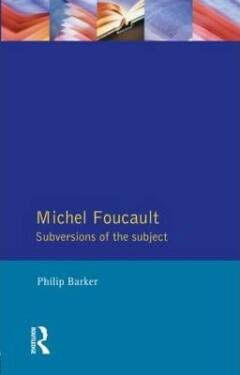
- Retrait gratuit dans votre magasin Club
- 7.000.000 titres dans notre catalogue
- Payer en toute sécurité
- Toujours un magasin près de chez vous
- Retrait gratuit dans votre magasin Club
- 7.000.0000 titres dans notre catalogue
- Payer en toute sécurité
- Toujours un magasin près de chez vous
Description
This unique and original study analyzes Foucault's interaction with the history of ideas, undertaking a genealogy of the subject that subverts conventional philosophical history to develop a distinctly Foucauldian intellectual history. Through a detailed account of Foucault's work and its relation to the history of ideas, Philip Barker shows how that history can be usefully reconceptualised using Foucault's concepts of genealogy and archaeology. Locating the emergence of self-reflexive consciousness in twelfth century philosophy, and elaborating upon autobiography as a philosophical persona, Barker argues that this extremely productive approach can be used to analyze the relationship between the history of philosophy, psychoanalysis and the transparent subject.
Spécifications
Parties prenantes
- Auteur(s) :
- Editeur:
Contenu
- Nombre de pages :
- 240
- Langue:
- Anglais
Caractéristiques
- EAN:
- 9780745013985
- Date de parution :
- 01-06-93
- Format:
- Livre broché
- Format numérique:
- Trade paperback (VS)
- Dimensions :
- 210 mm x 297 mm
- Poids :
- 452 g

Les avis
Nous publions uniquement les avis qui respectent les conditions requises. Consultez nos conditions pour les avis.






